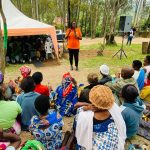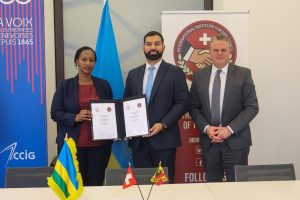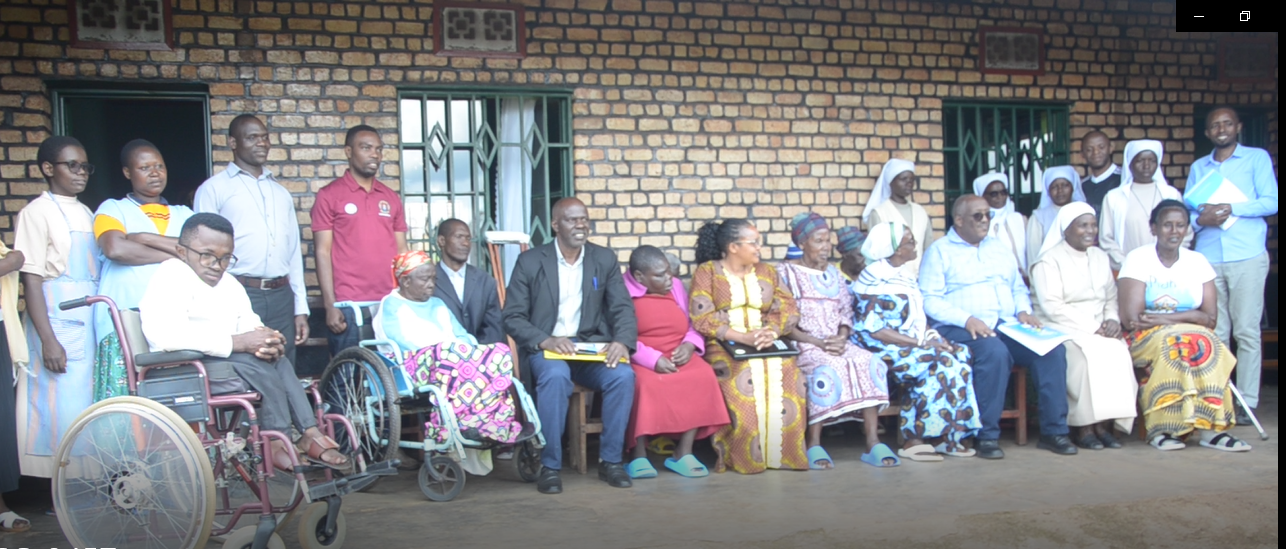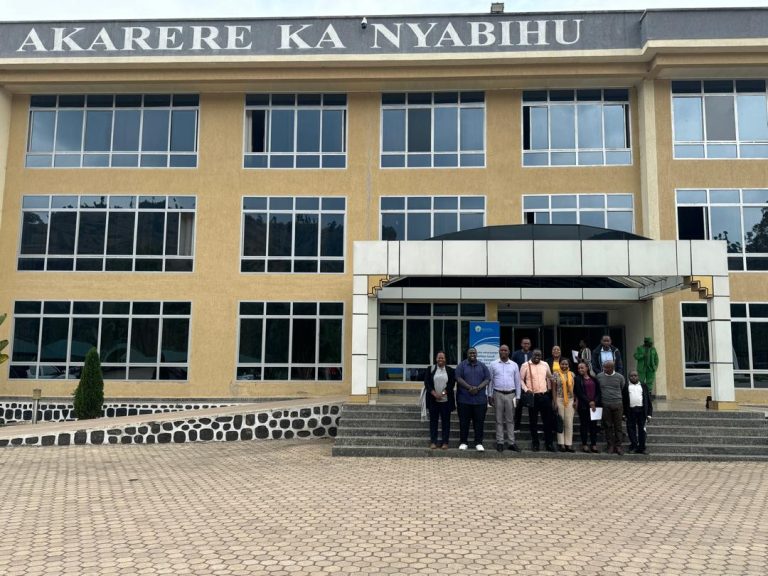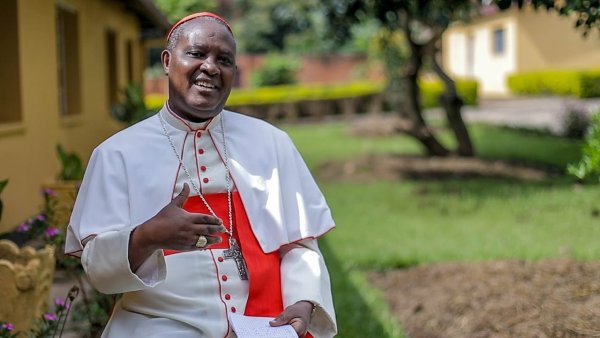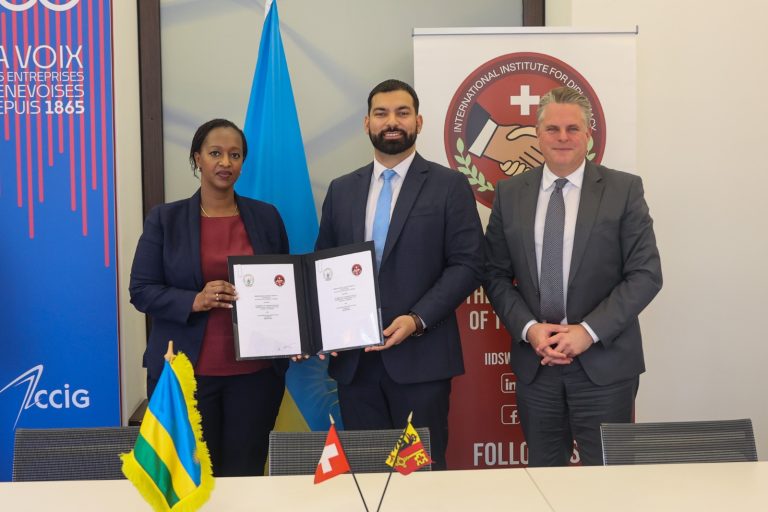As Rwanda continues to celebrate the annual Family Week, the Senate Committee on Social Affairs and Human Rights has called for greater commitment from both government institutions and communities to ensure the well-being of elderly citizens. The committee emphasized that older persons deserve to live dignified and meaningful lives, where their contributions and humanity are valued rather than forgotten.
This appeal was made during a recent visit by the committee to the Saint Vincent de Paul Home for the Elderly, a charitable institution run by the Sisters of Charity in Tumba Sector, Huye District. The center provides daily support to elderly men and women who are no longer able to care for themselves, ensuring they receive food, medical attention, and companionship.
Finding Peace and Dignity in Old Age
For many of the residents at Saint Vincent de Paul, the home has become a sanctuary of comfort and emotional healing. Among them are Daphorose Mukambanda and Domithille Nyiramongi, who say their lives have been transformed since they began receiving care from the Sisters. “I now sleep peacefully knowing that I am cared for,” Mukambanda said with a smile. “I have people who feed me, a warm bed to rest in, and loving hearts around me. Life is no longer a burden.”
Her companion, Nyiramongi, echoed similar gratitude: “We once felt forgotten, as though the world had moved on without us. But the Sisters restored our hope. They make sure we eat, pray, and never feel alone. They treat us like family.”
Charity Rooted in Love and Humanity
Sister Julienne Mukarwego, the head of the Saint Vincent de Paul Center, explained that their mission is deeply grounded in Christian values of love, compassion, and service to humanity. The congregation’s work, she said, aims to restore dignity to those who might otherwise live in isolation and despair. “We realized that many elderly people spend their final years in loneliness and poverty,” Sister Mukarwego said. “Here, we provide them with food, medical care, spiritual guidance, and, most importantly, companionship. It’s our way of reminding them that they still matter that they remain an essential part of our community.”
Currently, the Saint Vincent Center houses four elderly men and fourteen elderly women, all of whom receive full-time assistance. The facility not only addresses their physical needs but also provides emotional and spiritual support through daily prayers, group activities, and regular health monitoring.
Senate Calls for Stronger Protection of the Elderly
During the visit, Senator Umuhire Adria, Chairperson of the Senate Committee on Social Affairs and Human Rights, urged the government and local leaders to strengthen social protection mechanisms for the elderly, especially those without families or financial support. “Rwanda is developing rapidly,” she said, “but in that progress, we must not forget that our elderly are a vital part of who we are. They hold wisdom, experience, and values that have shaped this nation. Caring for them is not charity it’s a moral and social responsibility.”
Senator Umuhire further emphasized the need for collaboration between local authorities, civil society, and faith-based organizations to ensure that no elderly person is left behind due to poverty or neglect.
Challenges and the Need for Policy Reform
Despite visible progress, the National Commission for Human Rights (NCHR) reports that many elderly Rwandans still face significant challenges affecting their quality of life. Among the most pressing issues are:
The absence of a specific law protecting the rights of older persons;
Frequent shortages of essential drugs for non-communicable diseases (NCDs) in health centers and district hospitals;
Limited access to consistent social support services.
National statistics show that 82.2% of elderly people in Rwanda live in rural areas, while only 17.8% reside in urban centers. The Southern Province has the largest elderly population, followed by the Eastern and Western Provinces. The Northern Province and City of Kigali have comparatively smaller numbers.
At the district level, Nyagatare leads with 36,592 elderly residents, followed by Rusizi with 35,924, while Nyarugenge has the fewest, at 12,513.
The country’s National Social Protection Policy acknowledges that the number of elderly citizens is increasing rapidly, with many falling into the most vulnerable socioeconomic category. Without consistent support, they remain at risk of poor health, isolation, and financial insecurity.
A Call for Compassion and Continued Action
The story of the elderly residents at Saint Vincent de Paul reflects a broader truth about society that compassion and humanity are not measured by wealth, but by how a community treats its most vulnerable members.
While organizations like the Sisters of Charity continue to fill critical gaps, sustainable change will require stronger policy frameworks, community awareness, and a cultural shift toward valuing the elderly.
As Sister Mukarwego puts it, “Aging with dignity is not just about living longer it’s about being loved, respected, and remembered.”
Indeed, the smiles on the faces of Mukambanda, Nyiramongi, and their companions serve as a gentle reminder: growing old should never mean being forgotten, but rather being embraced as a living testimony to a nation’s moral strength and compassion.





